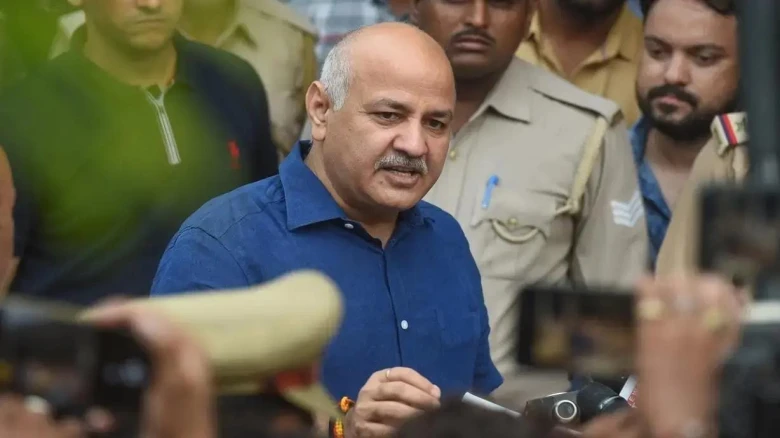Manish Sisodia’s legal battles continue, as the courts and investigative agencies delve deeper into the complexities of the case...
Digital Desk: In a significant development, the Supreme Court on Friday granted bail to former Delhi Deputy Chief Minister Manish Sisodia in connection with the Delhi excise policy case. The apex court’s decision marks a pivotal moment in the ongoing legal battle surrounding the controversial excise policy, which was subsequently scrapped. Sisodia’s release comes after a prolonged period of detention, spanning 17 months.
A bench comprising Justices BR Gavai and KV Viswanathan delivered the verdict, emphasizing that it would be a “travesty of justice” to require Sisodia to seek bail from the trial court. The court’s decision to grant regular bail pertains to cases being probed by the Central Bureau of Investigation (CBI) and the Enforcement Directorate (ED).
The Supreme Court imposed specific conditions for Sisodia’s bail. He is required to furnish a bail bond of ₹10 lakh accompanied by two sureties. Additionally, Sisodia must surrender his passport and is obligated to report to the Investigating Officer twice a week, specifically on Mondays and Thursdays. The court also stipulated that Sisodia must refrain from attempting to influence witnesses or tamper with evidence. These conditions aim to ensure that the legal process remains untarnished during Sisodia’s period of bail.
In a notable aspect of the ruling, the Supreme Court declined the ED’s request to restrict Manish Sisodia from visiting the Delhi Secretariat or the Chief Minister’s office. This request echoed similar restrictions imposed on Delhi Chief Minister Arvind Kejriwal when he was granted interim bail during the Lok Sabha election campaign. The bench’s refusal to impose such restrictions on Sisodia underscores the court’s commitment to a balanced approach in adjudicating bail conditions.
Sisodia’s pursuit of bail has been a protracted legal journey, with this being his third appeal to the top court. His previous attempts had met with setbacks, including an October 2023 ruling where the Supreme Court refused to grant bail but allowed the possibility of revisiting the plea if the trial experienced undue delays. As the trial did not commence within the stipulated six months, Sisodia renewed his bail plea, only to face rejection by the Delhi High Court on May 21, 2024. Subsequently, Sisodia approached the Supreme Court in June, challenging the high court’s decision. The Supreme Court’s ruling on Friday marks the culmination of this extensive legal struggle.
The Delhi excise policy case has been a focal point of controversy since its inception. Manish Sisodia was arrested in February 2023 by the CBI, followed by the ED a month later. The case was initiated based on a complaint filed by Delhi Lieutenant Governor VK Saxena in July 2022, alleging irregularities in the excise policy.
Sisodia, along with Delhi Chief Minister Arvind Kejriwal and AAP MP Sanjay Singh, has been a key figure in the case. While Singh is currently out on bail, Kejriwal remains in judicial custody at Tihar Jail. The charges against Sisodia, as outlined in the CBI’s FIR, accuse him of playing a pivotal role in recommending and implementing the excise policy for the year 2021-22, allegedly without the approval of the competent authority and extending undue favors to the licensee.
The ED, on the other hand, has accused Sisodia of using kickbacks from the excise policy to fund the Aam Aadmi Party’s 2022 Punjab election campaign. These allegations have further intensified the political and legal dimensions of the case.
With his release on bail, Manish Sisodia’s legal battles continue, as the courts and investigative agencies delve deeper into the complexities of the Delhi excise policy case.

Leave A Comment